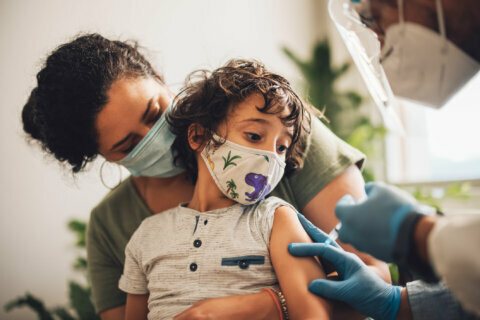This content is written by Oleg Tarkovsky, Director, Behavioral Health Services, CareFirst BlueCross BlueShield.
For at least two hundred years, vaccines have been the safest and most effective tool for preventing infectious diseases. No other advance in medicine can compare to the triumphs of vaccines in reducing or eradicating many life-threatening conditions across the globe. And yet, many people seem hesitant about getting vaccinated while questioning their benefits and worrying over their safety.
As COVID-19 continues making its presence known around the world, politicians and public health officials are perplexed by the increased community resistance to scientific claims of the safety and efficacy of vaccinations. In searching for a reason to explain this resistance, psychology and, more specifically, cognitive biases research have a lot to offer. Scientists have advised for decades that educational interventions alone are ineffective in changing the minds of those holding anti-vaccine beliefs. Education can reduce the dissemination of misinformation about vaccine safety and lack of understanding of basic science. Unfortunately, the much deeper seeded cognitive hindrances are considerably harder to eliminate. Given the connection between anti-vaccine beliefs and preventable infectious disease outbreaks, we must examine the cognitive processes that lead to the development of vaccine hesitancy.
Through evidence-based research, psychologists have discovered that people choosing not to get vaccinated may fall victim to various cognitive biases or errors in thinking. Errors in thinking often occur when we need to make a complex decision but lack adequate information to do so or have strong emotions related to our choice. Making effective vaccines requires an understanding of incredibly complex medical science. The exact means of how vaccines work can be difficult for most people to understand, thus, leading to several cognitive biases when deciding whether or not to vaccinate.
Cognitive dissonance is our first such bias. It arises when an individual has incompatible thoughts or behaviors. To reduce the discomfort produced by these inconsistencies, we either need to change our behavior or our beliefs. For example, when we read about the efficacy of vaccines but also worry about the side effects, we may conclude that vaccines don’t work to remove the dissonance. While these conclusions are factually inaccurate, choosing to believe them makes us feel better about our decision not to vaccinate.
Subsequently, some people who choose not to get vaccinated may depend on confirmation bias to validate their decision. Confirmation bias is our propensity to focus on information that supports our already existing beliefs. From time to time, we all fall victim to confirmation bias. But when it comes to vaccines, individuals choosing not to vaccinate regularly disregard abundant research and evidence demonstrating the necessity and effectiveness of vaccines. Instead, they focus on any possible sign supporting what they already believe about vaccines to validate their decision not to vaccinate.
Another fascinating bias playing a role in vaccine hesitancy is the omission bias. It occurs when we believe that the act of vaccinating, which may have a slight chance of side effects, is worse than not taking any action at all. Even when the likely results of this non-action pose a significantly higher risk, that is to say, while the risks involved with choosing not to get vaccinated are greater, not getting vaccinated can feel safer.
Lastly, the availability heuristic is one more mental shortcut we all encounter every day. Here, a person makes judgments about the probability of an event based on how easily an example or an instance comes to mind. Regrettably, this cognitive bias leads to us remembering rare or infrequent instances in which vaccines have failed instead of considering and recalling all the cases in which vaccines have effectively prevented disease. For example, while watching the evening news, we are very likely to be reminded of these rare occurrences, and therefore that will be the first information that comes to mind.
We know that educating people about the relative risks of vaccines instead of the diseases they prevent is insufficient in changing beliefs and attitudes toward vaccination. As previously mentioned, there are several psychological biases or mental shortcuts that don’t always result in optimal decision-making. In theory, communicating pro-vaccination community norms may have some positive effects that can lead to superior education efforts and restored confidence in the safety of the vaccines. Collectively, we should:
- focus resources on the importance of vaccination for both the health of the individual as well as for the health of the general public;
- stress how every one of us plays a vital role in the health of our communities;
- highlight that it is in everyone’s best interest to get vaccinated regardless of their own health status or personal beliefs; and,
- improve our understanding of how people may react to negative events and the heuristics they employ.
We are several months into the distribution and administration of COVID-19 vaccines. We are learning that one of the best ways to encourage individuals who are still hesitant may be to get yourself and your family vaccinated. Personally knowing someone who has already been vaccinated and seeing that the vaccine did not produce significant adverse effects can be a great motivator for people to get vaccinated themselves. What this means is that vaccine hesitancy will lessen in time as more and more people are vaccinated. Family and friends’ personal experiences with vaccination can be a more effective source of reducing doubt than those of public officials and even healthcare professionals.
To view the latest educational resources, visit CareFirst BlueCross BlueShield’s Coronavirus Resource Center.






